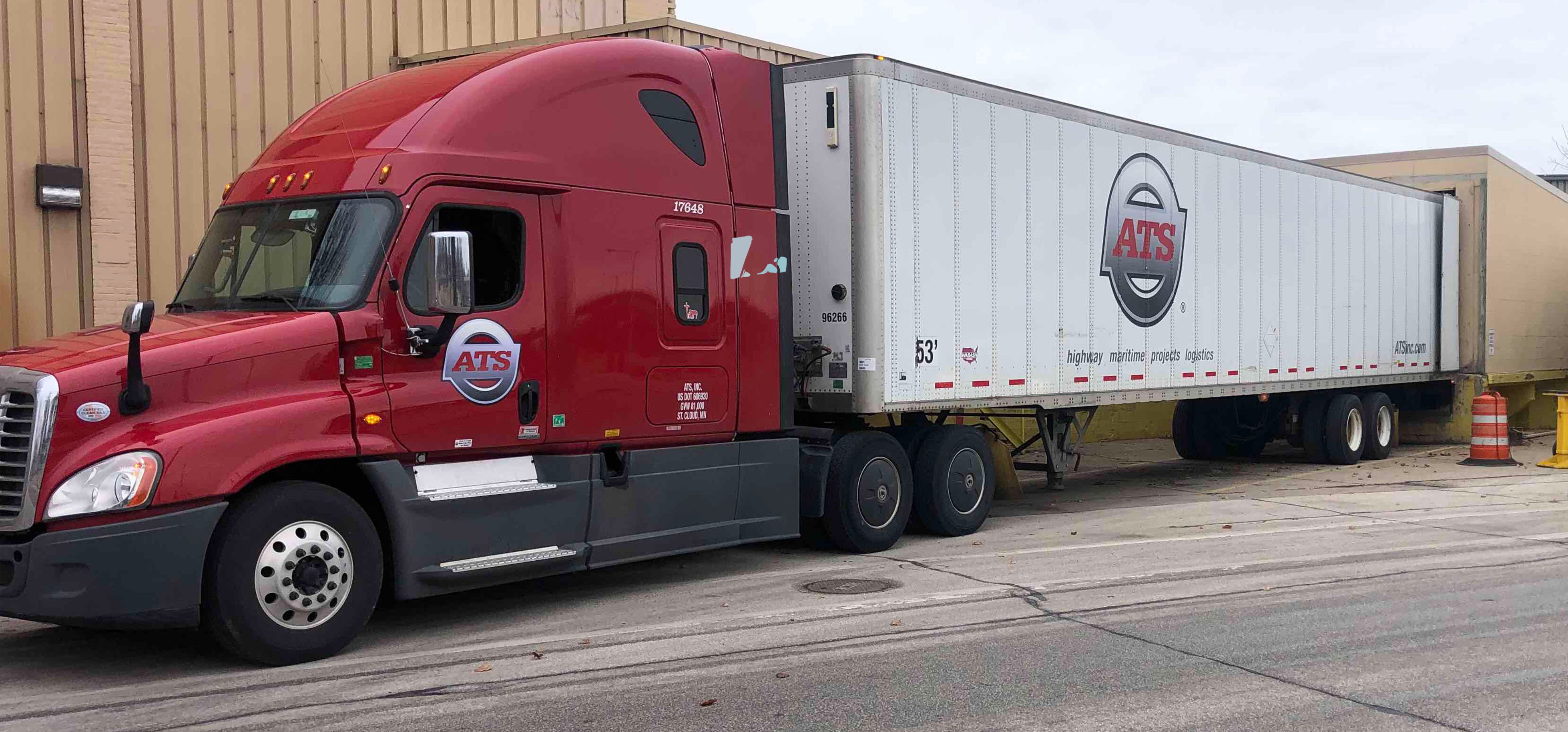When contracting for any service, you want to avoid as many unexpected charges as possible. This helps keep the overall project budget in check, and it means you don’t have to justify extra costs to your boss later.
In the trucking industry, additional surcharges are called “accessorials.” In a dynamic industry like transportation, some accessorial charges are to be expected. But you probably want to avoid that sticker shock and have your final invoice match the original quote.
At Anderson Trucking Service (ATS), we have worked with shippers across the country for over 67 years. Our goal is to help you not only move your freight to its final destination, but also to make sure you are as satisfied as possible with the transaction. If we can do that by helping you avoid additional surcharges, that’s what we’re here for.
While there’s no way to completely guarantee you will not have any accessorial expenses added to your final bill, there are a few things you can do to limit the number of surprises … and one surprisingly easy tip, which you can read in this post.

7 Common Accessorial Charges
Many common accessorial charges have to do with timing delays. Timing is critical in the transportation industry, and causing a delay for the driver will almost always incur additional fees. (Drivers are paid by the mile. If they aren’t moving, additional fees help replace the income they lose by sitting idle.)
1. Detention Fee
Detention fees are charged by the hour when a driver arrives at the scheduled time and the load is not ready for pick-up. Typically, the driver budgets two hours from the time they arrive at your location to the time they leave. If the driver will be sitting for more than two hours, expect to pay a fee of $50-$100+ per hour.
2. Layover Fee
Similar to a detention fee, a layover fee is charged when the shipment is not ready for the driver at the agreed-upon time. The difference is that layover is a daily fee, rather than hourly. A layover fee is charged when a driver can leave the site and return at a later date for pickup or delivery. Layover fees will vary depending on the type of equipment used as well as the length of the layover, but will typically start at no less than $250.
3. TONU (Truck Ordered Not Used)
A TONU fee is charged when a truck is requested and booked with a carrier but, for whatever reason, it’s not used. If your plans change and you need to cancel your shipment, or if you realize at the last minute that you need a different type of trailer, expect to pay a TONU fee. This fee will vary based on the type of truck originally ordered (highly specialized equipment will be more expensive to order).
4. Tarping
Tarps and straps are carried on open-deck trucks to protect your freight from the elements. Covering the freight with a tarp requires driver time and effort, leading to an additional fee. Tarping fees will vary depending on the number and size of tarps needed, as well as the conditions for the driver.
5. Additional Insurance
When moving highly valuable freight (above the industry standard specification of $100,000), you may want to add additional insurance to protect your assets. Expect to pay for that.
6. Additional Driver Credentials
If you require the truck driver to have additional credentials (such as TWIC for unescorted access to ports), you will be charged an additional fee. This is to pay for the driver’s specialized expertise, which is in shorter supply than standard shipping solutions.
7. Drop Trailer Charges
Drop trailer is charged when a driver leaves a trailer at the pick-up or delivery site and then returns at a later date to retrieve the trailer and carry it to the next destination. Drop trailer is common when hauling commodities that take more than a day to load or unload. Think of this fee as a rental charge for the time the trailer is at your location, or a convenience fee for getting extra load time.
These are just some of the most common accessorial charges. The trucking industry runs on tight timelines and delays or last-minute changes will often lead to additional fees and surcharges.
The #1 Way to Avoid Trucking Surcharges
So how can you avoid paying accessorial fees in the trucking industry?
The easiest way to avoid paying extra fees is to communicate honestly and often with your carriers.
That’s it. Start communicating as soon as possible. Have as much accurate information available as soon as you can. If something changes, contact your provider right away. Facilitate an introduction between your consignee and your carrier so they can be in touch as needed.
Is it really that simple? Sort of. Communicating is the best way to keep your project running smoothly and with the fewest surprise fees. Here are some of the specific points you should be sure to communicate.
- When will the freight be ready? Several accessorial charges are related to the time the driver spends waiting for freight to be loaded or unloaded. If the truck can be loaded within the one to two hours allotted, you can save on delay-related fees.
- Will staff be available? If the driver is expected to load or unload freight or perform other tasks, expect to pay additional fees. Additional fees may also be charged if there is no one on site to direct the driver to an exact location for loading/unloading. It’s easiest to specify this as early as possible.
- How long will the driver be at the receiver? Similar to picking up on time, if the receiver is ready to unload promptly you will avoid charges imposed for using the driver’s time.
- What are the open hours at the shipping and receiving points? Keep your provider informed of the availability of needed staff at both ends of the route. If holidays or special events will impact your open hours, communicate that as soon as possible so the driver can plan their hours of service as accurately as possible.
- Does the driver need to communicate with the receiver along the road? If it will simplify unloading to have the driver communicate with the consignee ahead of time, let everyone know. The driver doesn’t know what they don’t know, so clearly communicating all details ahead of time will simplify things for them and avoid charges.
- Contact info for the carrier and receiver. Things will happen en route. If the driver is unable to communicate with the consignee, that may add headaches and charges to the trip.
If known, these charges can be part of your initial shipping estimate, allowing you to accurately budget and get approvals from the beginning of the project.

When Is the Best Time to Communicate With Your Freight Carrier?
In short, always! When you first talk with your carrier, let your contact know as much information as possible about the size and timing of the load, as well as other requirements.
If the how, when, and/or where of your load changes, let your contact know as soon as possible. Your carrier may be able to help you solve any issues that have come up, and the more time they have the more likely that is to happen.
If your driver or other contact is calling because they need directions or clarification, answer the phone! If the driver is unable to find the location or needs other assistance, you may have to pay an additional fee.
Bad news doesn’t get better with time, and it’s best to address it head-on as soon as possible. Don’t be shy about admitting when something has happened. Working to solve the problem as soon as possible is nearly always preferable to paying accessorial fees.
Are Accessorial Charges Negotiable?
If your final bill is surprising and includes more additional fees than you budgeted for, what can you do?
In some cases, these charges are non-negotiable. But if you communicate (there’s that word again) with the carrier, you may be able to lower or eliminate some of these charges, even after the fact.
The key is to get accurate information to the carrier, or put them in touch with someone who can. For example, your customer will answer your call; they may not answer a call from an unfamiliar carrier’s number. Can you introduce them? Do that. Anything you can do to simplify the process for the shipping company and the driver will help lower or eliminate unexpected fees.
Understanding accessorial fees is important when your final invoice includes surprising charges. Now that you better understand what these surcharges are, you can be better prepared for them when the time comes. But perhaps more importantly, you know how to avoid as many of these charges as possible. (Remember how? It’s through communication.)
Understanding accessorial charges, as well as the factors that impact the price of trucking services, will help you budget properly for shipping freight, whether it is going across the county or across the country.
Ready to book your next load? ATS is happy to work with you to negotiate your load based on the information you have available. Contact us to get started.
